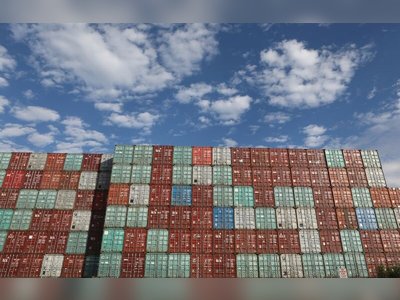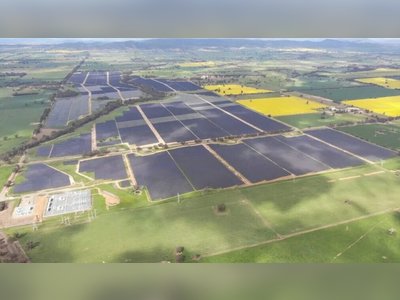Australia's Grocery Market: An Overview of Competition and Dominance
Woolworths and Coles control nearly 80% of the Australian grocery sector, raising questions about market competition and pricing strategies.
The Australian grocery retail sector is characterized by the dominance of two major players, Woolworths and Coles, which together control approximately 80% of the market.
Despite the apparent attractiveness of this market for global supermarket chains, few have managed to establish a foothold, with Aldi capturing only 9% after two decades of investment and Costco managing a mere 1% of the market since its entry in 2009.
A recent investigation by the Australian Competition and Consumer Commission (ACCC) delved into the pricing practices of these retailers amid community concerns of price gouging.
Following extensive inquiries, including 100 public submissions and an additional 20,000 consumer comments, the ACCC concluded that while there was limited incentive for price competition among Woolworths, Coles, and Aldi, there was no legal evidence of price collusion.
The ACCC's report heavily focused on the suppliers' relationship and the power dynamics at play, with findings suggesting that the retail giants exercise significant influence over suppliers, which could indicate a structural imbalance within the market.
Only three of the 20 recommendations made by the ACCC pertained directly to increasing price competition; the majority aimed at enhancing pricing transparency and improving the effectiveness of loyalty programs.
Comments from governmental sources, including Treasurer Jim Chalmers, highlighted concerns regarding potential repercussions of fragmenting the duopoly.
The Treasurer indicated that proposals to break up the two companies could lead to unintended consequences, such as increased market consolidation or negative impacts on service in regional areas.
Former ACCC chair Graeme Samuel expressed skepticism about the effectiveness of proposed interventions, warning that altering the structure could exacerbate existing issues rather than resolve them.
Critics have long alleged that the dominant retailers engage in land banking, buying available sites to prevent competition, but the ACCC found that local council decisions primarily drive these site-related issues.
Despite the early goodwill both companies garnered during the COVID-19 pandemic, concerns over grocery prices escalated as inflation took hold.
Reports indicated that as overall food costs surged amid interest rate hikes, earnings for Woolworths increased by 20% in their supermarket sector, potentially fueling public resentment as earnings rose faster than general inflation.
Both Coles and Woolworths have faced scrutiny regarding their pricing strategies, including allegations of misleading promotions.
This has led to enforcement actions by the ACCC, highlighting a growing regulatory focus on their promotional practices.
The concentration of market power in Australia's grocery sector reflects broader trends observed across various industries, including airlines, banking, and telecommunications, where a small number of players dominate.
Economists note that while economies of scale can lead to lower production costs, when accompanied by reduced competition, the benefits may not always translate to consumers, potentially undermining free market principles.
Both Woolworths and Coles maintain that increased regulation may result in higher costs for consumers, as recent findings led to heightened investor confidence, reflected in rising share prices for both companies.
The ongoing dialogue around market dynamics and regulatory approaches continues to shape the landscape of Australian food retail.
Despite the apparent attractiveness of this market for global supermarket chains, few have managed to establish a foothold, with Aldi capturing only 9% after two decades of investment and Costco managing a mere 1% of the market since its entry in 2009.
A recent investigation by the Australian Competition and Consumer Commission (ACCC) delved into the pricing practices of these retailers amid community concerns of price gouging.
Following extensive inquiries, including 100 public submissions and an additional 20,000 consumer comments, the ACCC concluded that while there was limited incentive for price competition among Woolworths, Coles, and Aldi, there was no legal evidence of price collusion.
The ACCC's report heavily focused on the suppliers' relationship and the power dynamics at play, with findings suggesting that the retail giants exercise significant influence over suppliers, which could indicate a structural imbalance within the market.
Only three of the 20 recommendations made by the ACCC pertained directly to increasing price competition; the majority aimed at enhancing pricing transparency and improving the effectiveness of loyalty programs.
Comments from governmental sources, including Treasurer Jim Chalmers, highlighted concerns regarding potential repercussions of fragmenting the duopoly.
The Treasurer indicated that proposals to break up the two companies could lead to unintended consequences, such as increased market consolidation or negative impacts on service in regional areas.
Former ACCC chair Graeme Samuel expressed skepticism about the effectiveness of proposed interventions, warning that altering the structure could exacerbate existing issues rather than resolve them.
Critics have long alleged that the dominant retailers engage in land banking, buying available sites to prevent competition, but the ACCC found that local council decisions primarily drive these site-related issues.
Despite the early goodwill both companies garnered during the COVID-19 pandemic, concerns over grocery prices escalated as inflation took hold.
Reports indicated that as overall food costs surged amid interest rate hikes, earnings for Woolworths increased by 20% in their supermarket sector, potentially fueling public resentment as earnings rose faster than general inflation.
Both Coles and Woolworths have faced scrutiny regarding their pricing strategies, including allegations of misleading promotions.
This has led to enforcement actions by the ACCC, highlighting a growing regulatory focus on their promotional practices.
The concentration of market power in Australia's grocery sector reflects broader trends observed across various industries, including airlines, banking, and telecommunications, where a small number of players dominate.
Economists note that while economies of scale can lead to lower production costs, when accompanied by reduced competition, the benefits may not always translate to consumers, potentially undermining free market principles.
Both Woolworths and Coles maintain that increased regulation may result in higher costs for consumers, as recent findings led to heightened investor confidence, reflected in rising share prices for both companies.
The ongoing dialogue around market dynamics and regulatory approaches continues to shape the landscape of Australian food retail.
AI Disclaimer: An advanced artificial intelligence (AI) system generated the content of this page on its own. This innovative technology conducts extensive research from a variety of reliable sources, performs rigorous fact-checking and verification, cleans up and balances biased or manipulated content, and presents a minimal factual summary that is just enough yet essential for you to function as an informed and educated citizen. Please keep in mind, however, that this system is an evolving technology, and as a result, the article may contain accidental inaccuracies or errors. We urge you to help us improve our site by reporting any inaccuracies you find using the "Contact Us" link at the bottom of this page. Your helpful feedback helps us improve our system and deliver more precise content. When you find an article of interest here, please look for the full and extensive coverage of this topic in traditional news sources, as they are written by professional journalists that we try to support, not replace. We appreciate your understanding and assistance.











